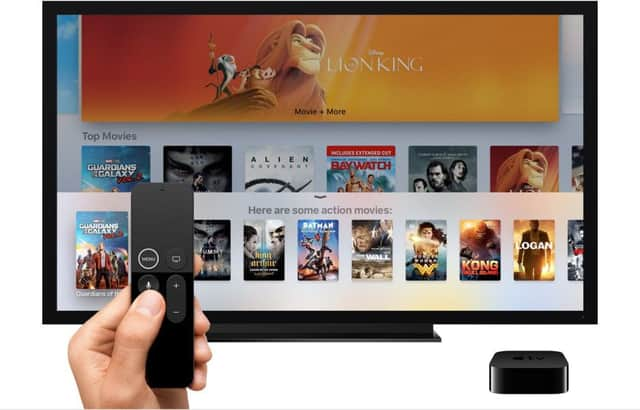Is it the end of the road for the Apple TV box?


To use a gardening analogy, this is as groudbreaking as Lancelot ‘Capability’ Brown knocking down the walls of one of his gardens and inviting McAlpine’s in to dig up the flower beds.
The walled garden that has always protected Apple’s ecosystem of hardware and the apps that run on it, has been one of the defining principles of the computer industry since the 1980s, when the first Macintosh was released. You only got Apple if you bought Apple.
Advertisement
Hide AdAdvertisement
Hide AdiTunes on Windows was an exception because the company’s founder, Steve Jobs, could not afford to ignore the vast majority of the record-buying public who did not have Macs.
But the latest news represents a turn on a sixpence. It can be ascribed directly to the unexpected profit warning from Apple at the beginning of the year, which sent its shares briefly into freefall. The company blamed a slowdown in China for a likely shortfall of £4bn in its revenue. Customers, it said, were buying fewer iPhones, iPads and computers than they had imagined.
This is not really surprising, though. Consumers in China, and anywhere else, are likely to buy only if there is a compelling reason for them to do so, and Apple’s products are close to saturation point among those in the market for them. The stream of innovation that ran through the company on Jobs’ watch has dried up.
But while that may be worrying for Apple, it increases the choice for the rest of us.
Advertisement
Hide AdAdvertisement
Hide AdThe first indication of the company’s change of policy came with the announcement that films on iTunes – previously available only if you spent £150 or more on one of the company’s own set-top boxes – will now be built in to Samsung smart TVs, alongside Netflix, the iPlayer and the other streaming platforms.
At the same time, Sony and LG announced that some of their new TVs would be compatible with Apple’s proprietary AirPlay 2 streaming technology, allowing the broadcasting of content from phones and tablets directly to the TV.
You will need a new set to be able to do any of this, but by the time you’re ready to buy one, the technology should be there for you.
The content is another matter. There is very little on iTunes that isn’t also available on Amazon, Google Play or one of the other subscription outlets. Apple was said to have £1bn in its kitty to commission original programmes in the same way that Netflix produced The Crown, but its catalogue so far consists mainly of rehashed versions of formats you’ve seen a hundred times before.
Advertisement
Hide AdAdvertisement
Hide AdThat is perhaps why Apple has shifted relatively few of those set-top boxes, which are, in any case, overpriced compared to rival offerings from Google, Amazon and the platform-neutral Roku.
If you are an iPhone or iPad devotee, frustrated that you can’t stream content to your TV as easily as someone on the same sofa with an Android handset, the new integrated sets could be what you’ve been waiting for, though there’s no word yet on how much they will cost.
You might also take the view that Apple’s change of heart is the thin end of the wedge, and that other convergences will follow. Whether this makes the iPhone a more or less attractive proposition is another matter.